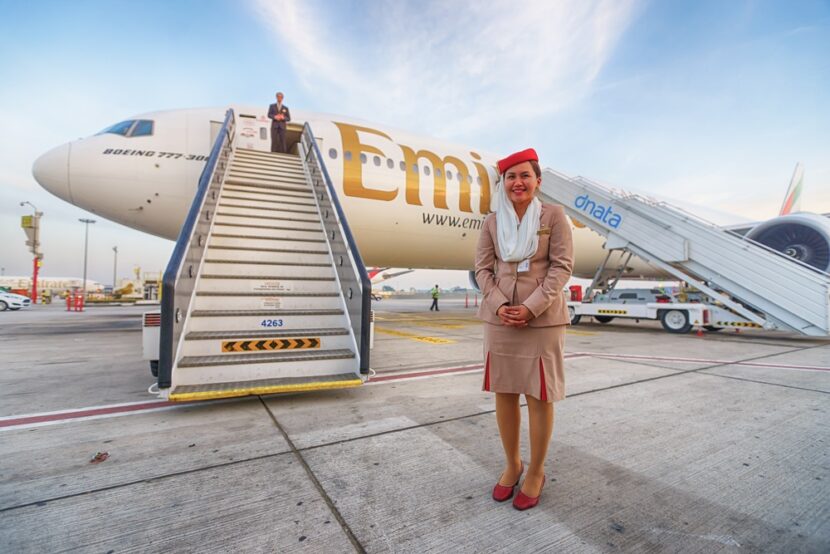DUBAI — The Middle East’s biggest airline, Emirates, said Tuesday its profits were up by about 56 per cent to $1.9 billion in the last fiscal year largely due to lower oil prices that drove down fuel costs.
The Dubai government-owned airline said revenue, however, fell in 2015-2016 by four per cent to $23.2 billion from $24.2 billion in 2014, mostly because of a stronger U.S. dollar that impacted currencies in many markets where the Emirates operates, including in its base in the United Arab Emirates where the dirham is pegged to the dollar.
Emirates President Tim Clark told The Associated Press that despite the drop in revenue, the airline’s fuel bill decreased to $5.4 billion over the last year, comprising around 26 per cent of operating costs, compared to 35 per cent the year before. Still, fuel remains the airline’s biggest cost.
“The revenue fall has been well managed, let me say that. It could have been a lot worse,” said Clark, who added that the company was also able to save on its supply costs.
The airline, which marked its 30th anniversary last year, has posted profits for 28 consecutive years.
Its parent company, Emirates Group, which includes the Dnata ground and travel services provider, reported that profits also climbed to $2.2 billion from $1.5 billion in the previous fiscal year, though revenue fell three per cent to $25.3 billion. Emirates Group employs some 95,000 people, with 61,000 working for the airline.
Emirates carried nearly 52 million passengers in 2015-2016. That’s helped its hub at Dubai International Airport claim the mantle as the world’s busiest for international passengers, handling some 78 million passengers last year. The world’s overall busiest, however, remains Hartsfield-Jackson Atlanta International Airport.
In addition to Emirates, other Gulf carriers such as the Abu-Dhabi based Etihad Airways and Doha’s Qatar Airways, have increasingly challenged Western airlines in long-haul flights.
U.S. carriers — including American Airlines, Delta Air Lines and United Airlines — have criticized the three major Gulf carriers, saying they are aggressively expanding services to the United States while receiving unfair subsidies from their governments. They have pressed Washington to renegotiate treaties that allow Gulf airlines to fly to the U.S.
Emirates, Etihad and Qatar Airways deny they are subsidized. Emirates, which flies to 10 U.S. cities, has made it no secret it wants to expand to more.
“That will not sound very good. It won’t resonate well in certain quarters in the US. But we have stated that’s what we’re going to do,” Clark said.
When asked if Emirates would be open to codeshares with more U.S. airlines, he said that would be the sensible thing to do given the amount of travel through Dubai as a global hub for passengers connecting between Europe, Asia and Africa. The airline currently has a codeshare agreement with U.S. carrier Jetblue Airways.
“It would make sense for them to engage with us rather throw bricks at us and there will be a commercial benefit, a mutual commercial benefit,” he said.
